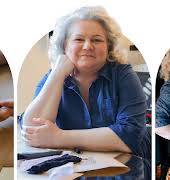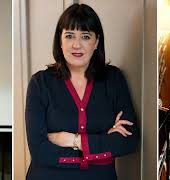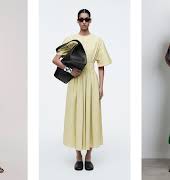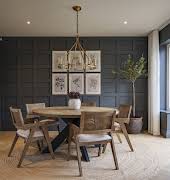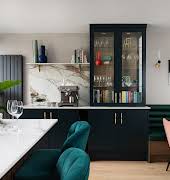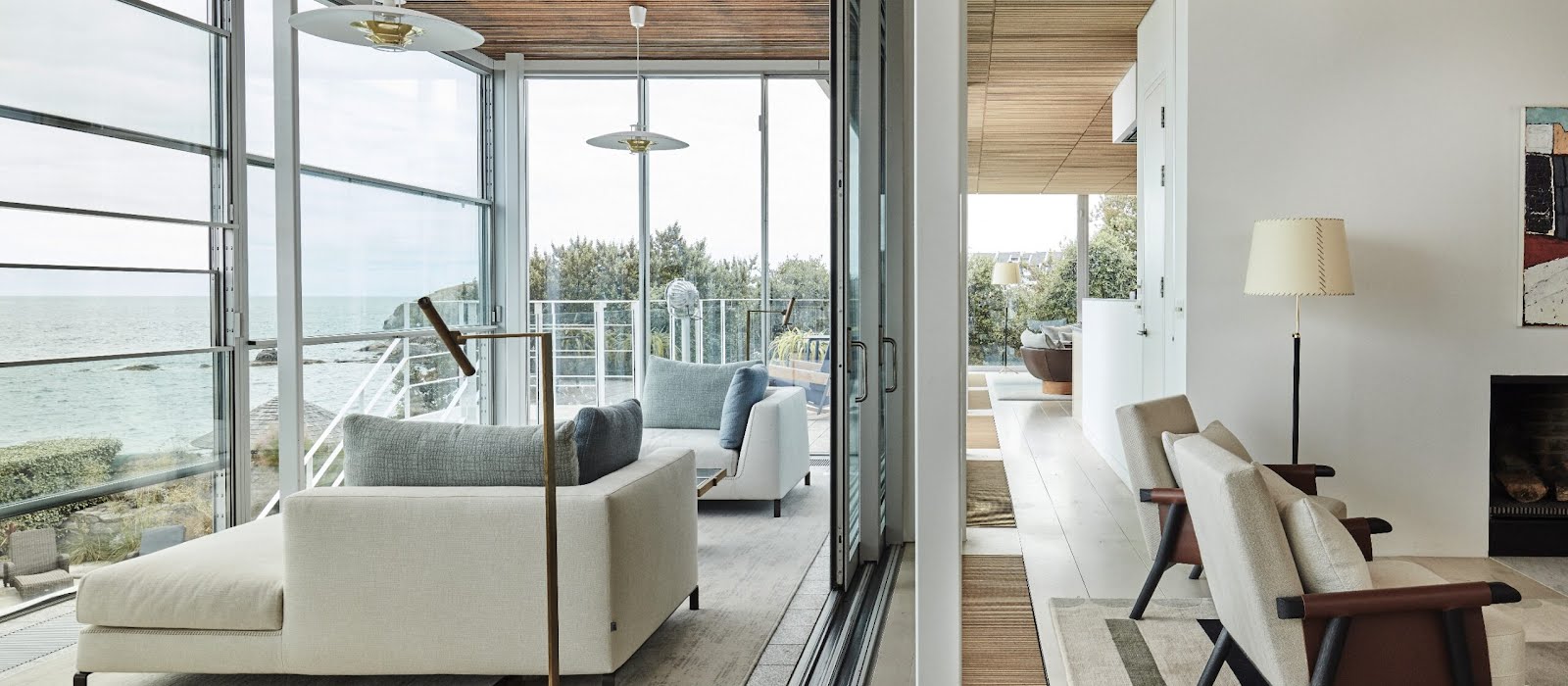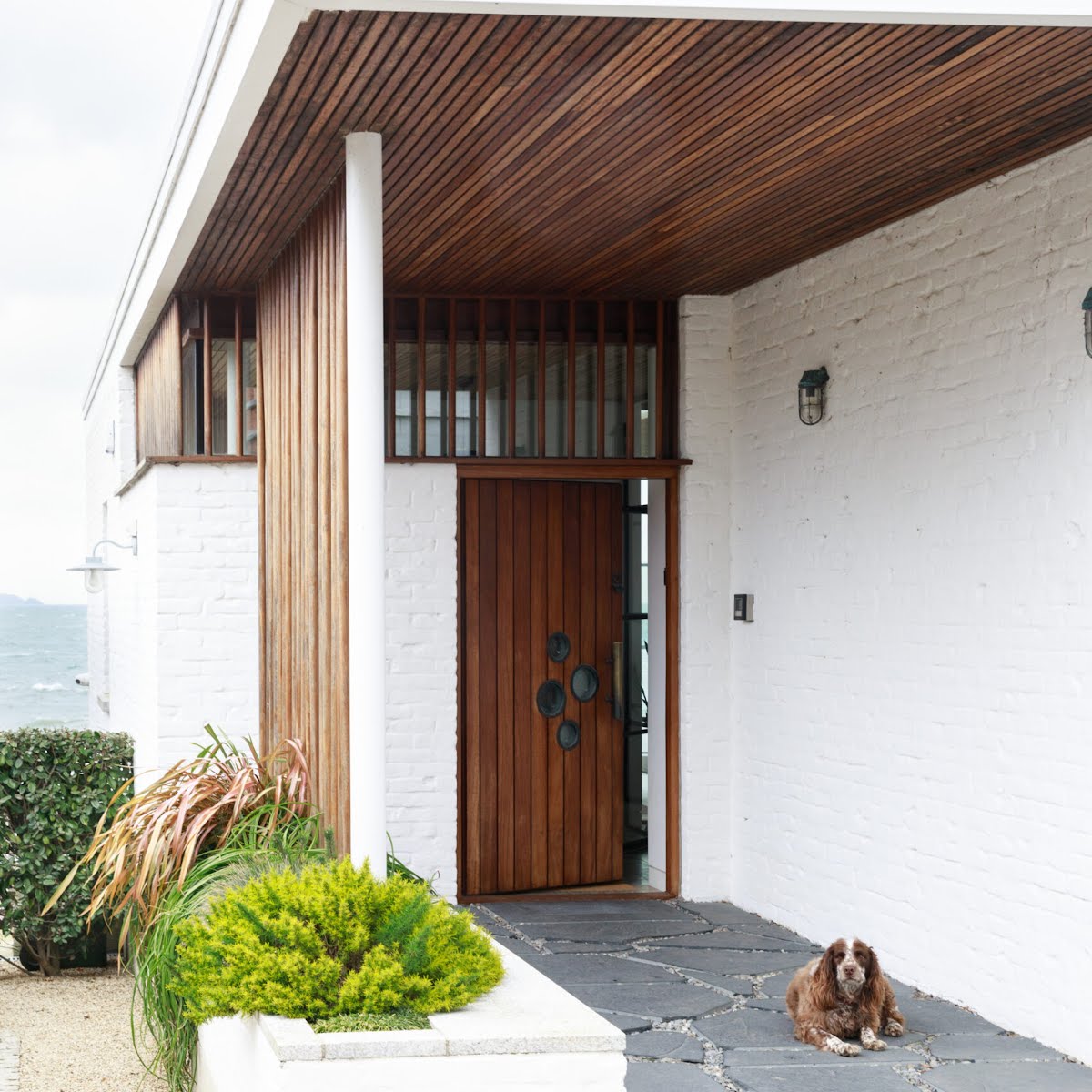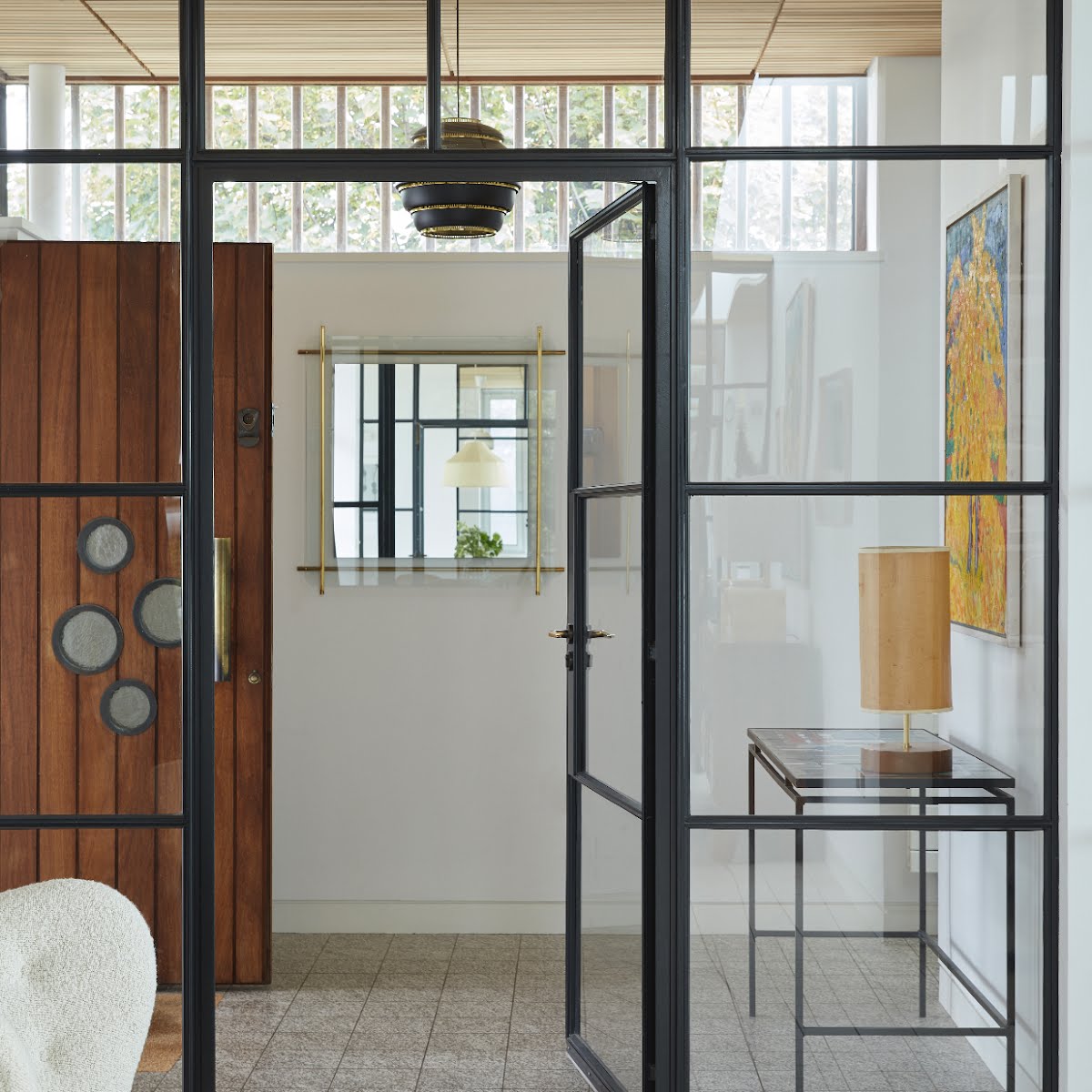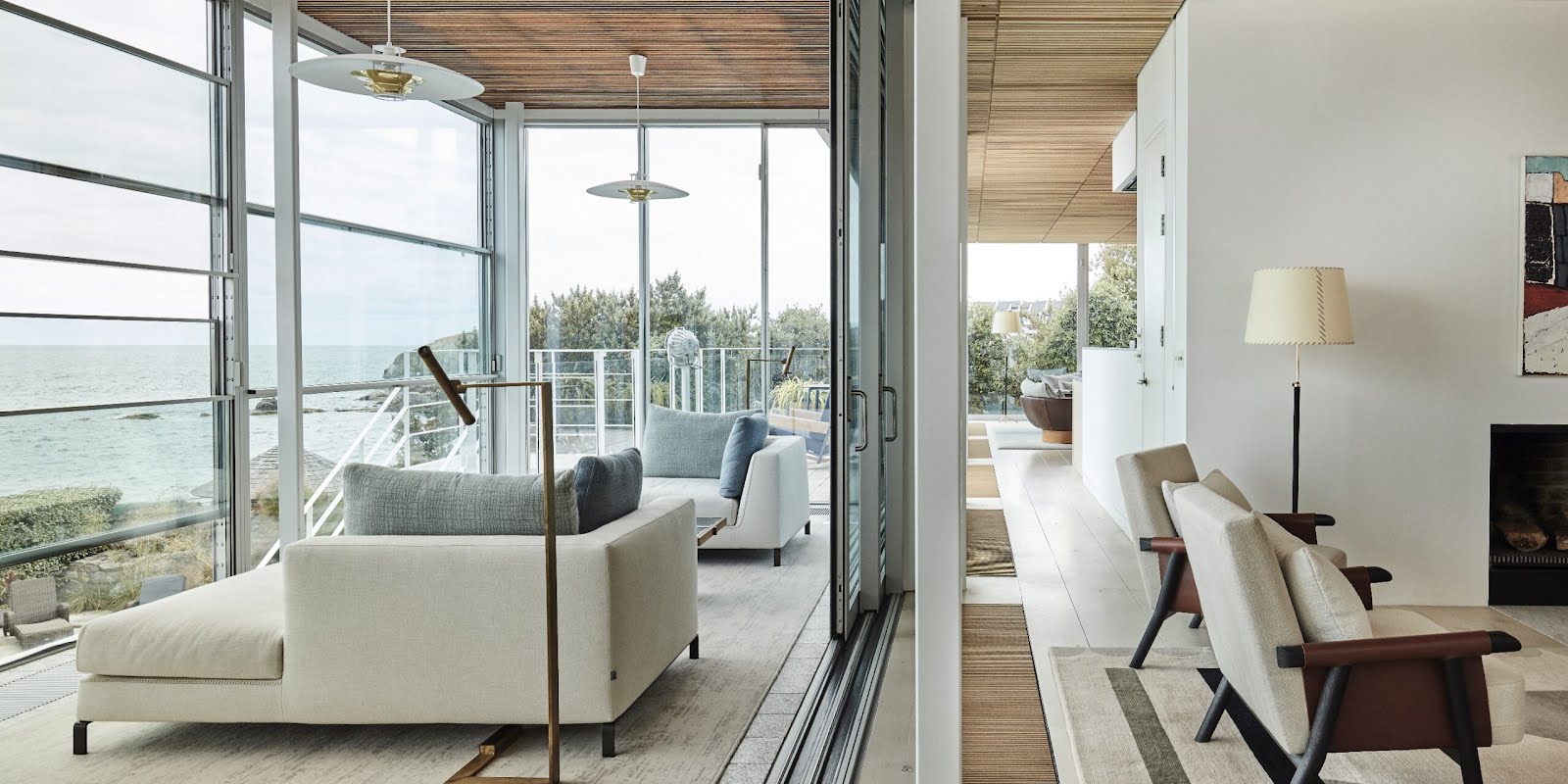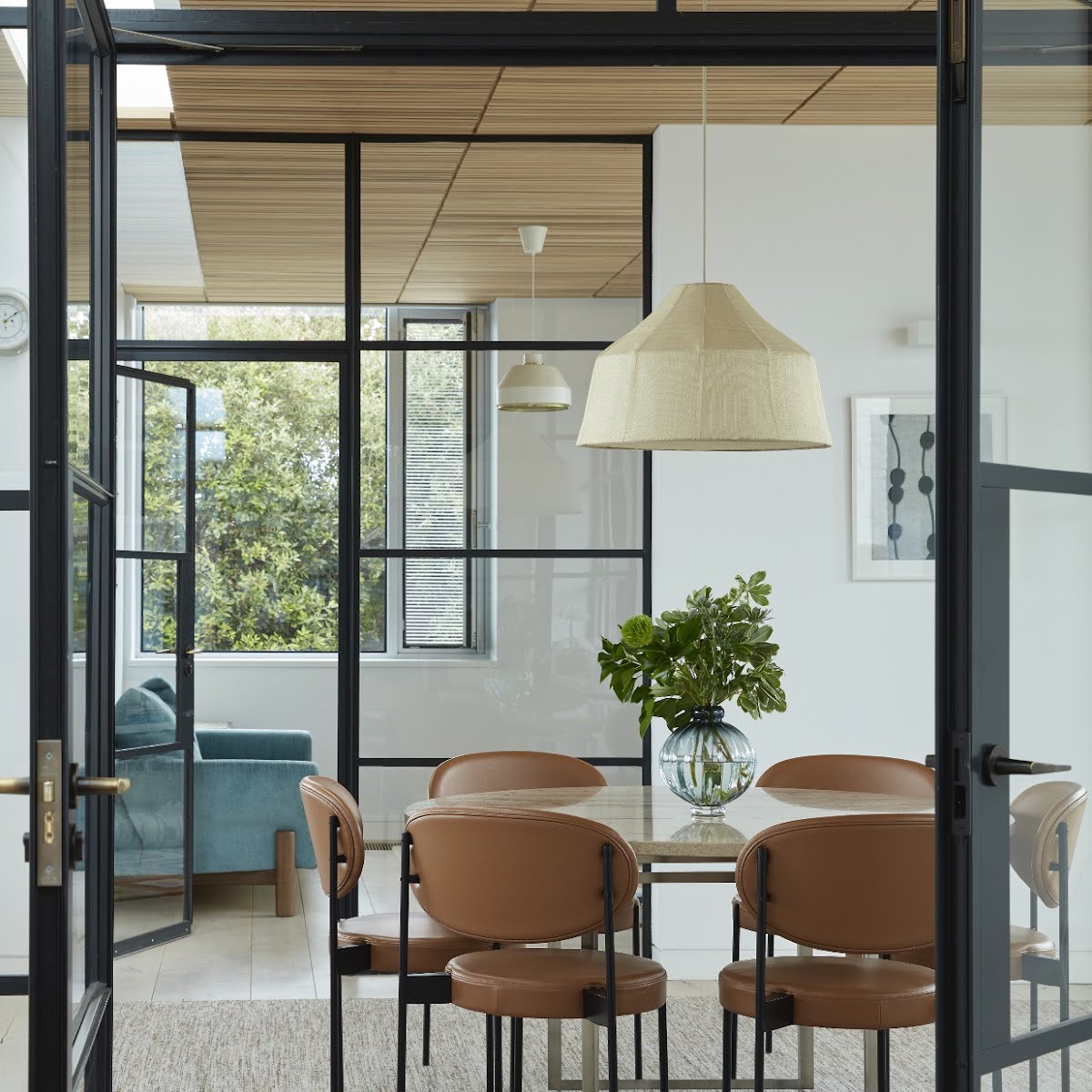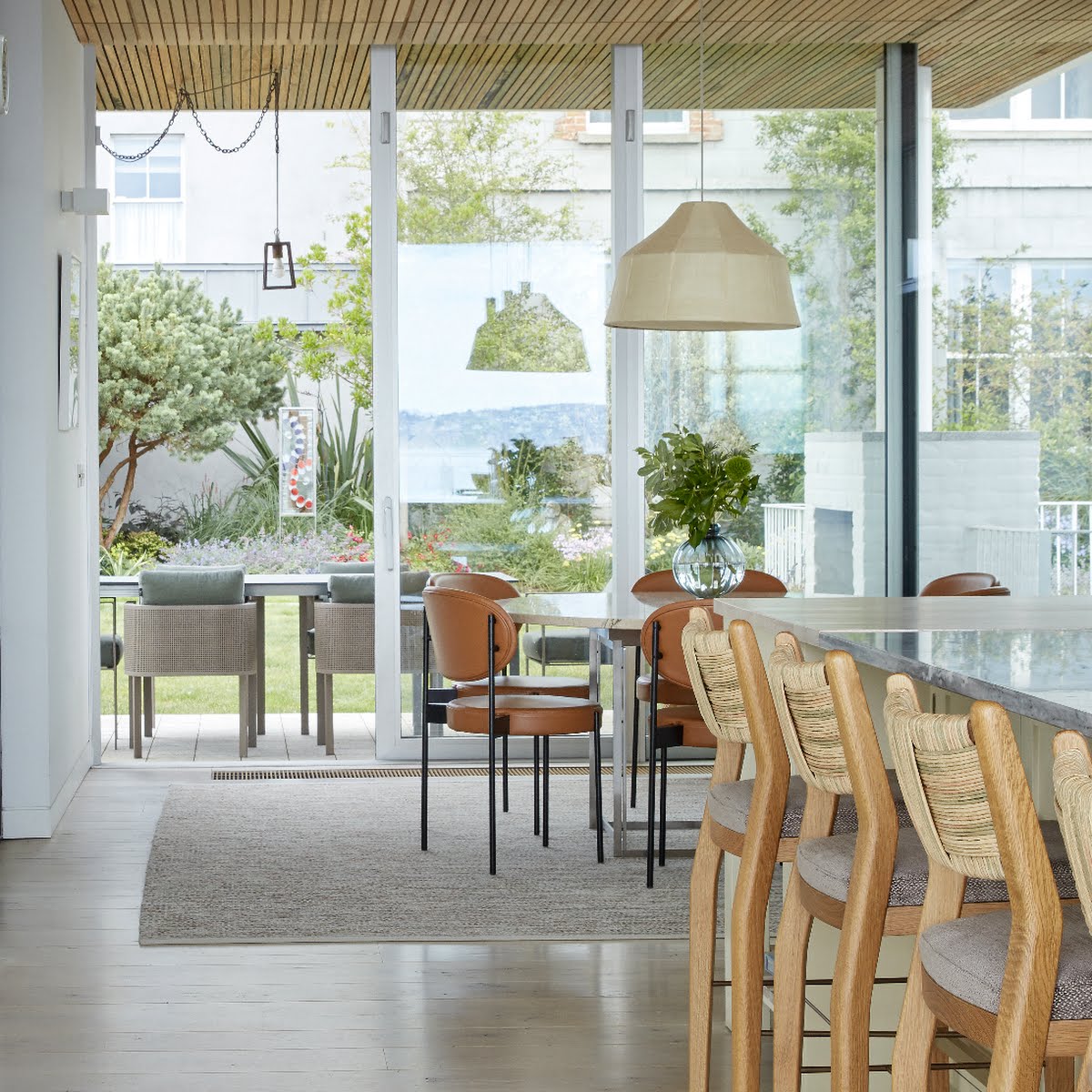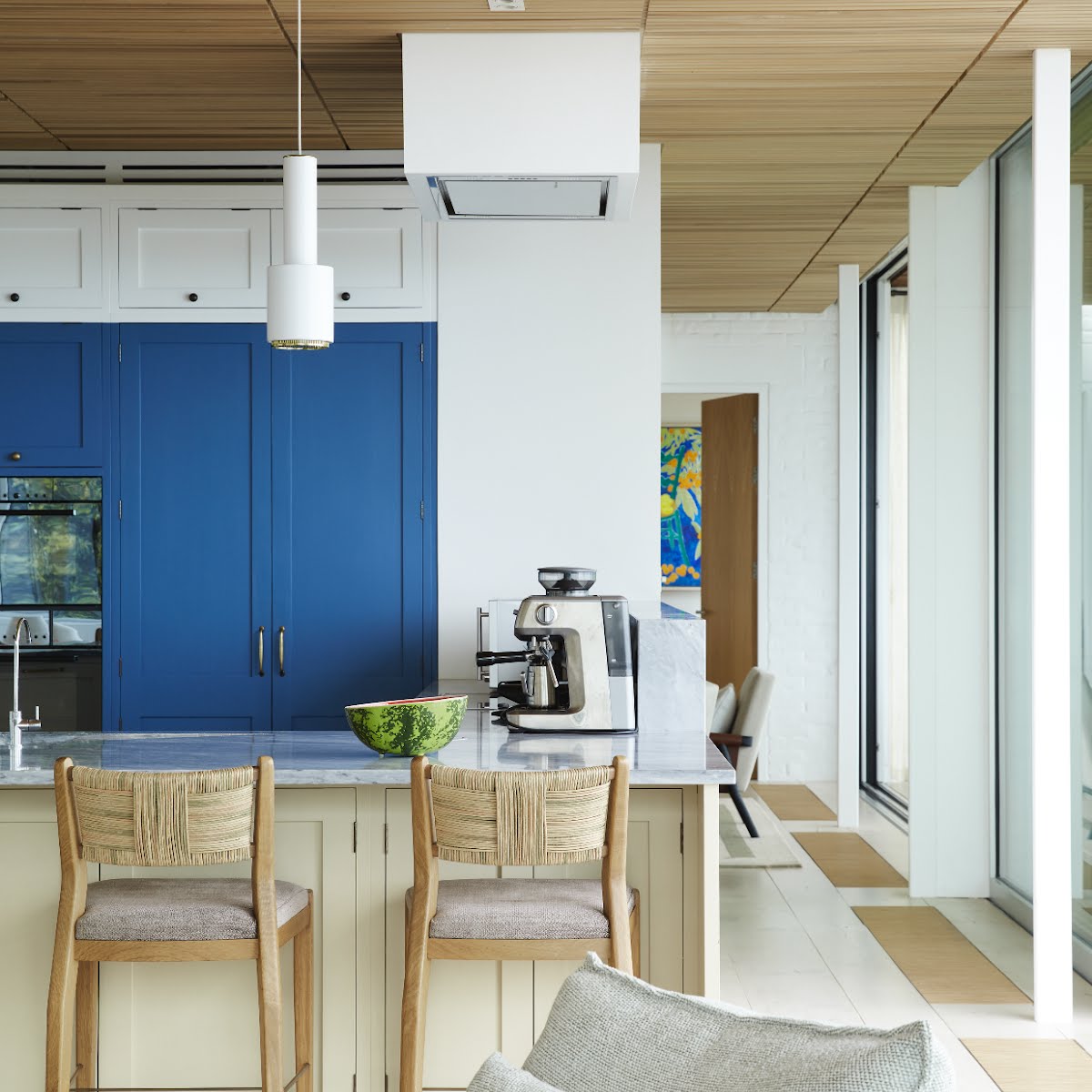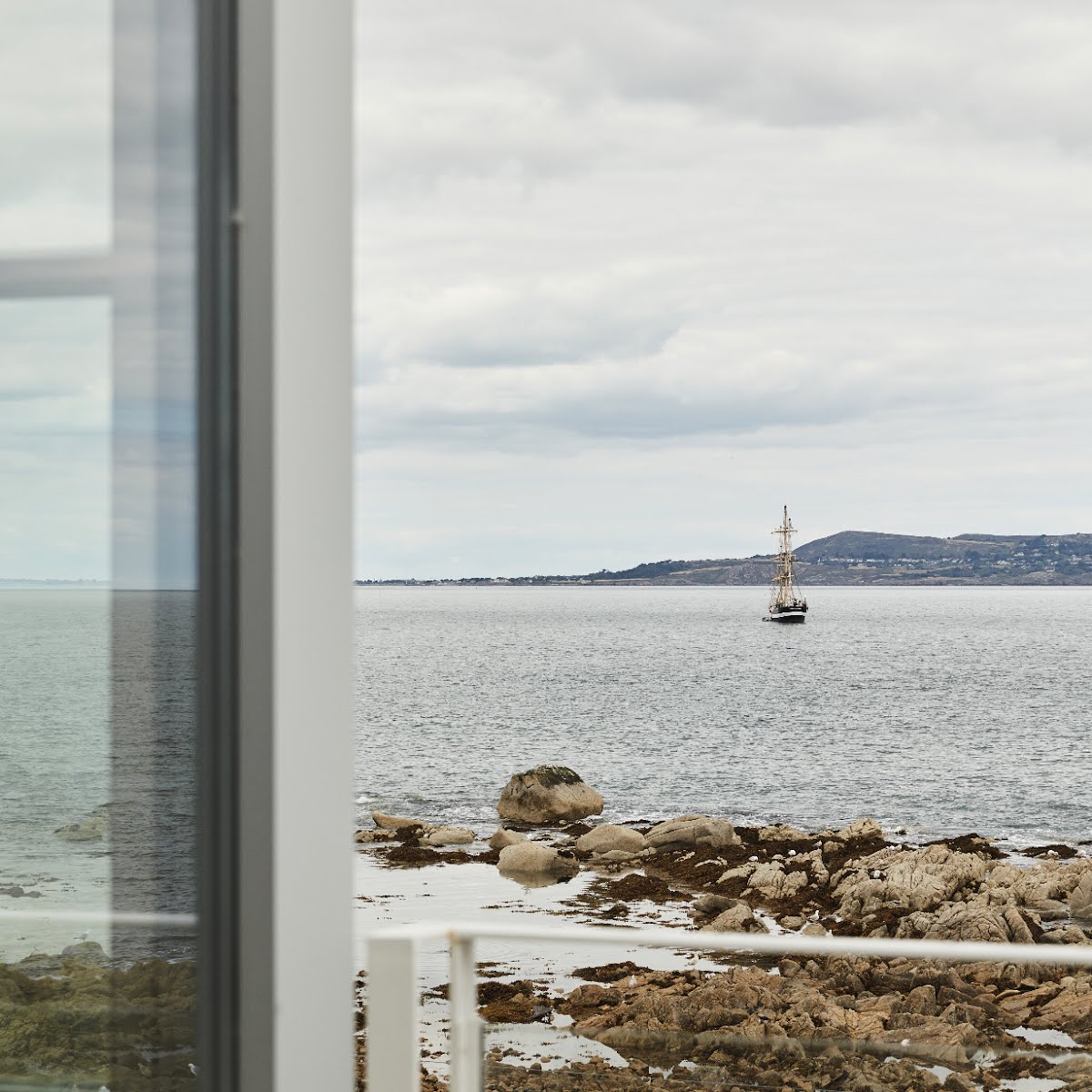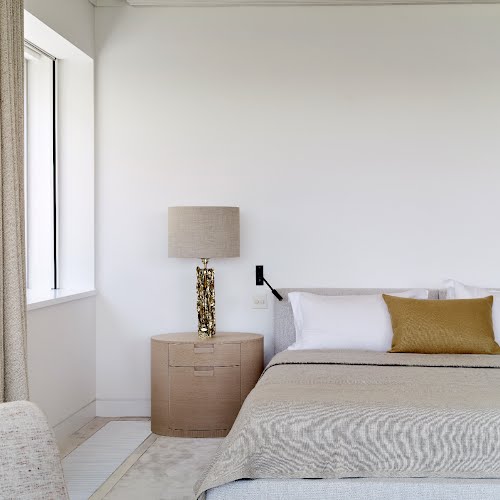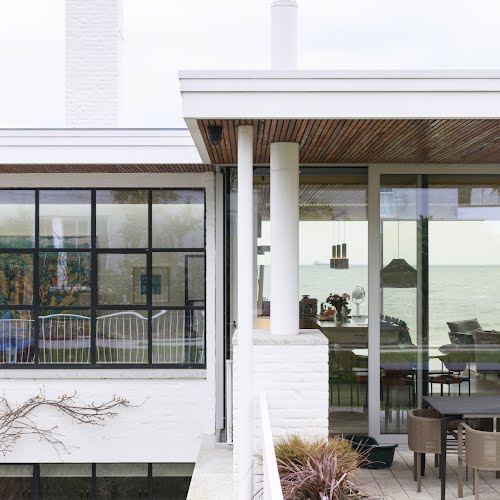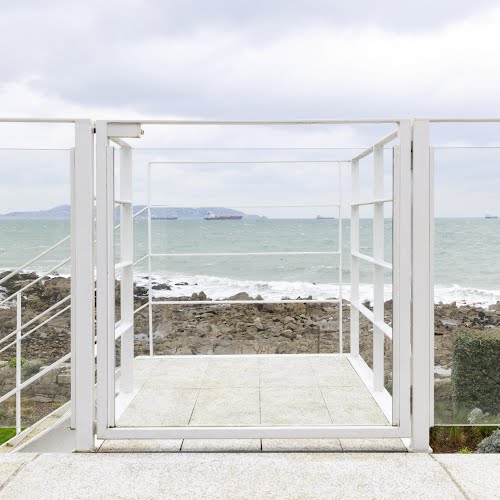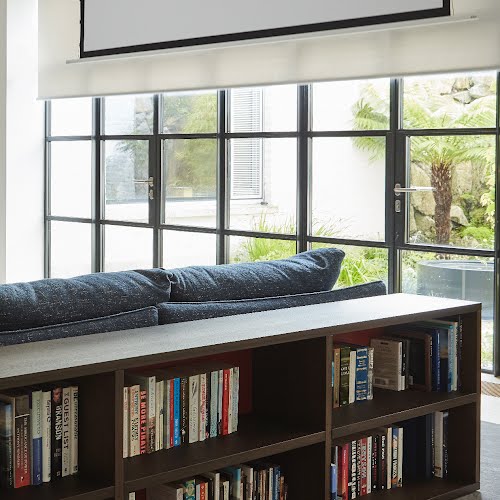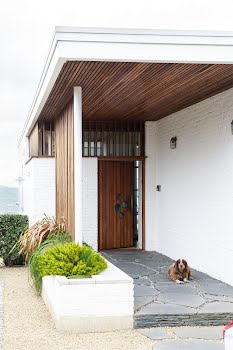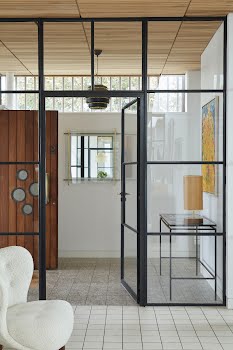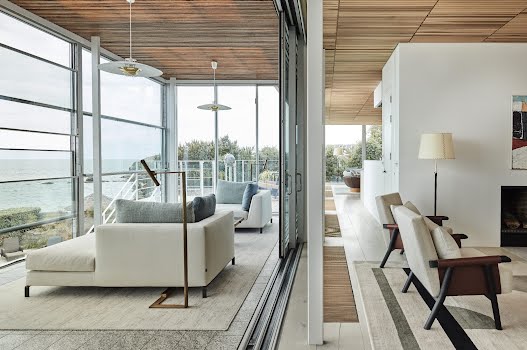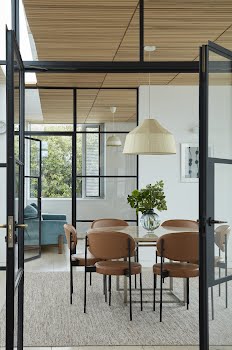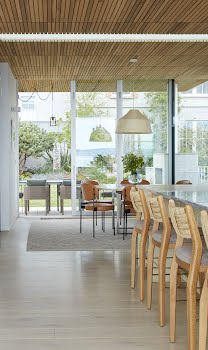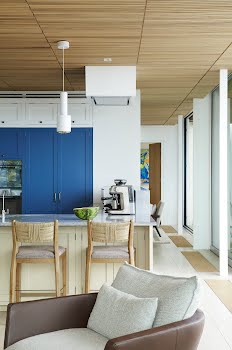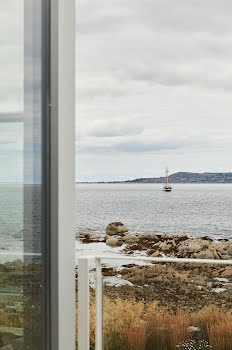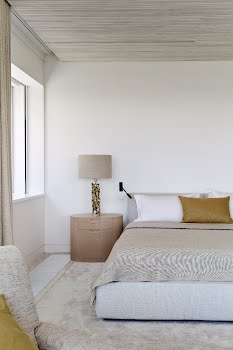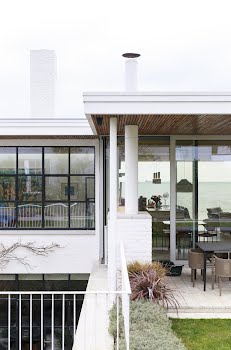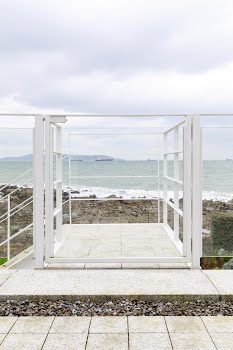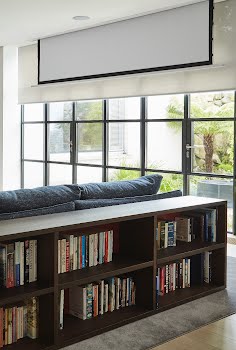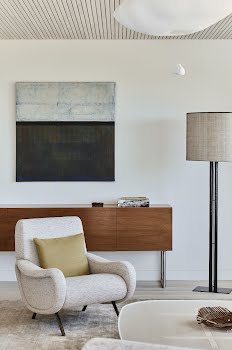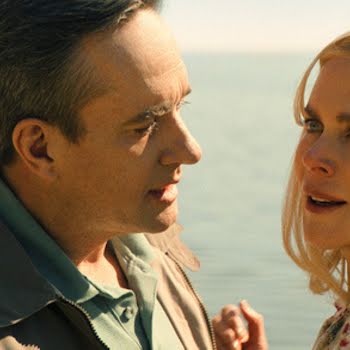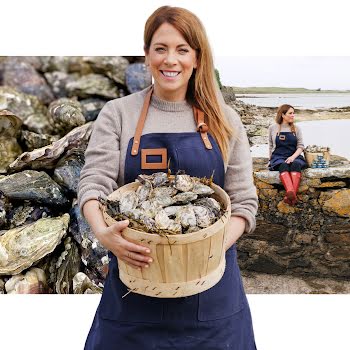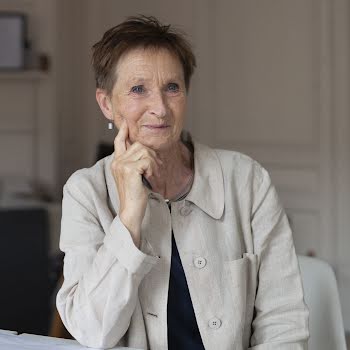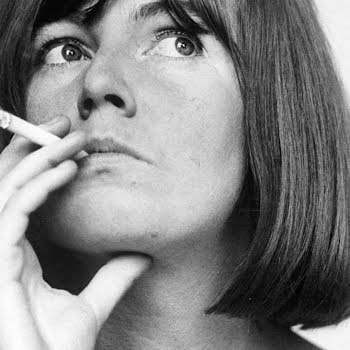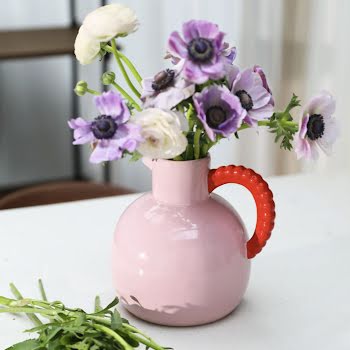
Mid-century cool meets contemporary Irish design in this Dublin seaside home
This seaside sanctuary gradually reveals its spectacular views of the Dublin coast – tucked away behind an inconspicuous exterior.
Imagine a trip to the Hamptons unwittingly diverted into a mid-century California cool home without the egotistical swagger. From the street, there is just a hint of this sleek building that unfolds effortlessly to the sea, tucked into a hillside on the Dublin coast, its soft limewash brick exterior a subtle nod to what lies beyond.
Even when you step inside the porch, you are deliberately drip-fed beautiful hints of what’s to come without revealing too much. It’s not until you walk through the gallery lobby and into the main living space that you meet the panorama of ocean from the glass façade – a clever design element intent on delivering design moments and sea views with every Tardis-like reveal.
“The sequence of space is probably my favourite aspect of the house,” says Mark Arigho who, together with the late John Meagher of de Blacam and Meagher Architects, designed the house before setting up his own firm, ALWA. “John was a great mentor of mine and a master of architecture. He considered everything, right down to the smallest detail. He always said a home should be somewhere that isn’t too regimented, where life takes over, and that’s always stuck with me.”


